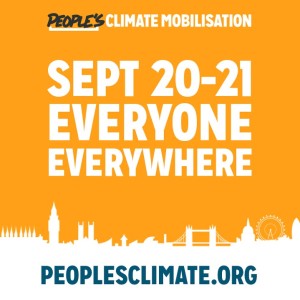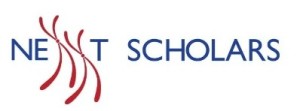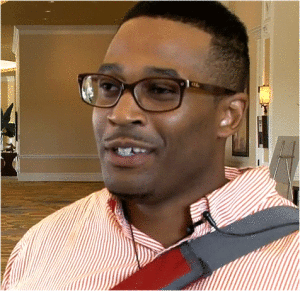This weekend I watched the recently released short film, Disruption, which is available online for free viewing. In less than one-hour, the scientists, authors and activists featured in the film highlight some truly frightening data and trends. As those who believe in the vast majority of the science already understand, we must do more to limit greenhouse gas emissions if we want any chance of keeping global temperature change below 2°C relative to pre-industrial levels.
Thankfully, the conversion to a clean energy economy is already feasible, both economically and technologically. Countries like Germany have been demonstrating the possibilities of renewable energy, despite having sunshine similar to that of Alaska. We also know the scientists of ECS are currently working on even more exciting research to improve our understanding and technological capabilities in photovoltaics, nanotechnology and fuel cells, among other cutting-edge fields.
In my view, the bold pledge to move toward open access at ECS has serious implications for action on climate change. If we can make the scientific research results and latest findings more widely accessible, we may speed up the scientific discovery process. Perhaps a young scientist in the developing world will unlock the key to some perplexing scientific dilemma, once we’ve made the latest findings more freely available in an ECS journal. Many of us believe we can accelerate the pace of innovation, and help solve critical challenges by opening access to scientific research. You can support those efforts by donating to the ECS Publications Endowment.
 In the meantime, I plan to attend the Peoples Climate March on Sunday, September 21. There is an entire staging area for scientists, among the various 1,500 other groups, including students, environmentalists, labor unions, and community activists. Together, we’ll be demanding action on climate change, just two days before President Obama and other world leaders are set to attend a Climate Summit at the United Nations hosted by Secretary General Ban Ki-moon.
In the meantime, I plan to attend the Peoples Climate March on Sunday, September 21. There is an entire staging area for scientists, among the various 1,500 other groups, including students, environmentalists, labor unions, and community activists. Together, we’ll be demanding action on climate change, just two days before President Obama and other world leaders are set to attend a Climate Summit at the United Nations hosted by Secretary General Ban Ki-moon.





